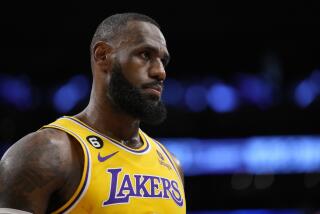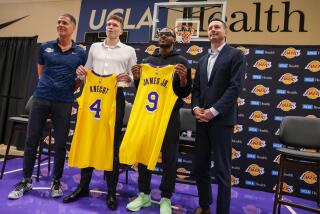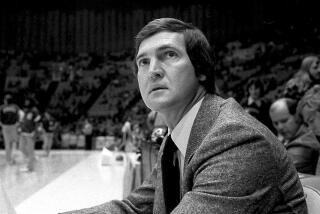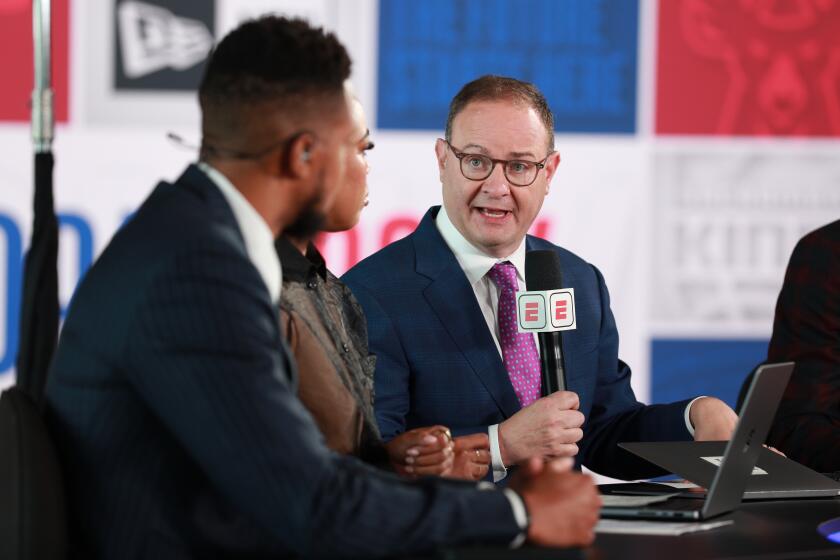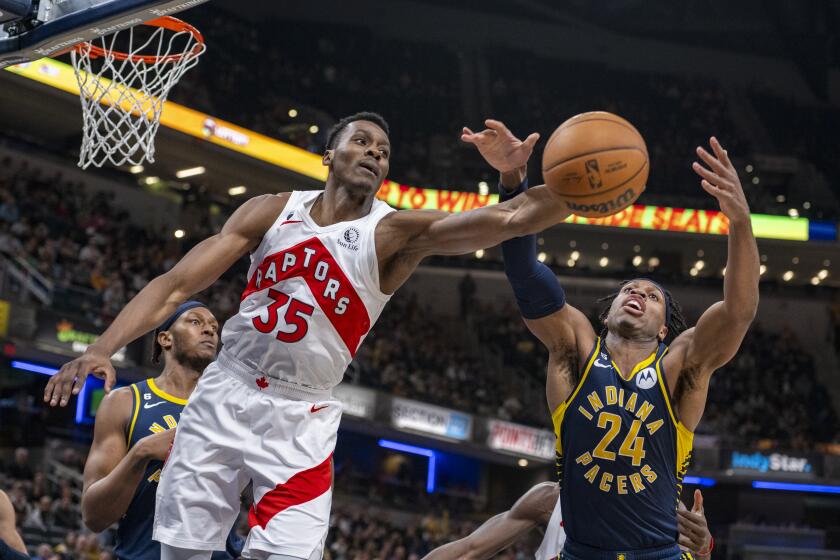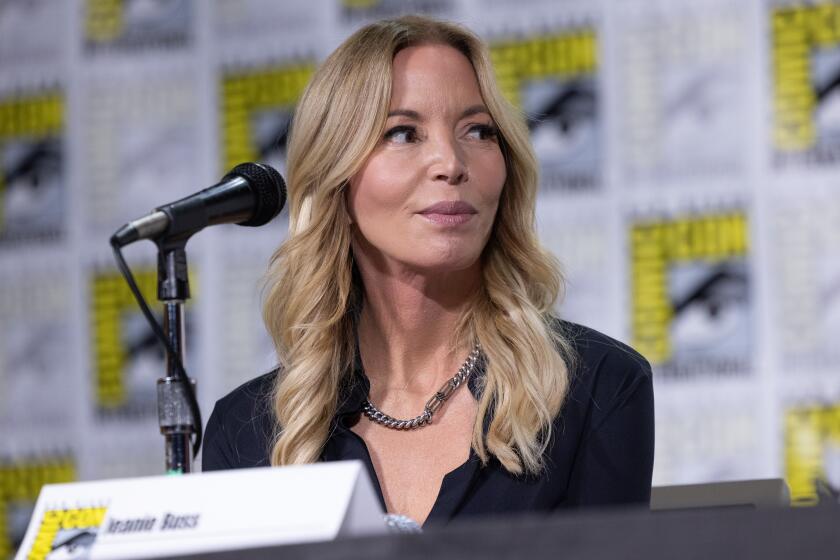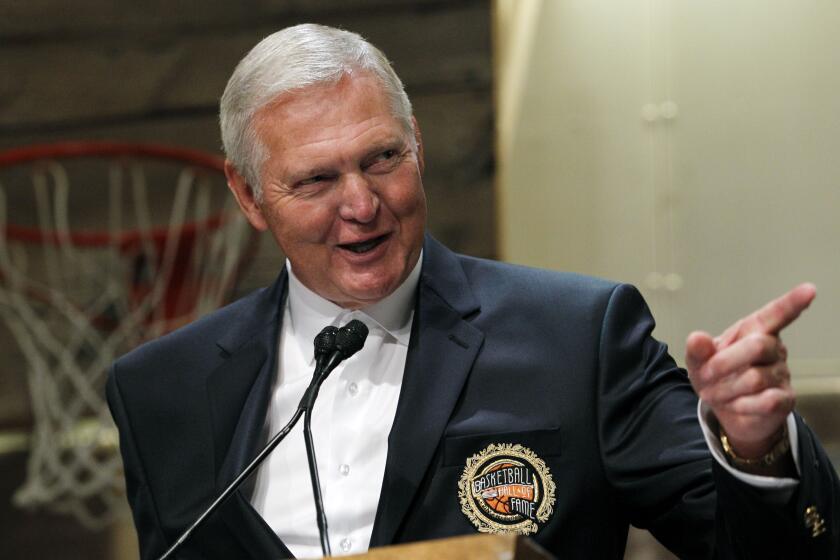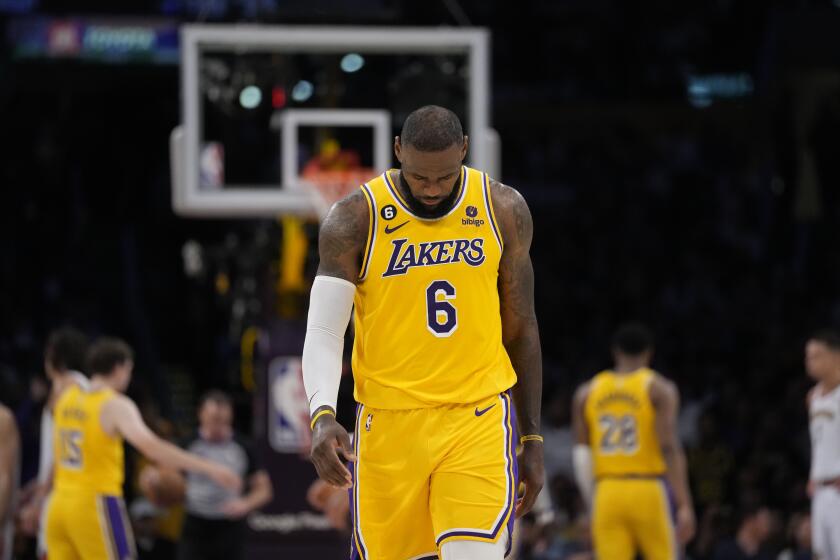Metta World Peace is nothing like his reputation — and a big part of what the Lakers could use
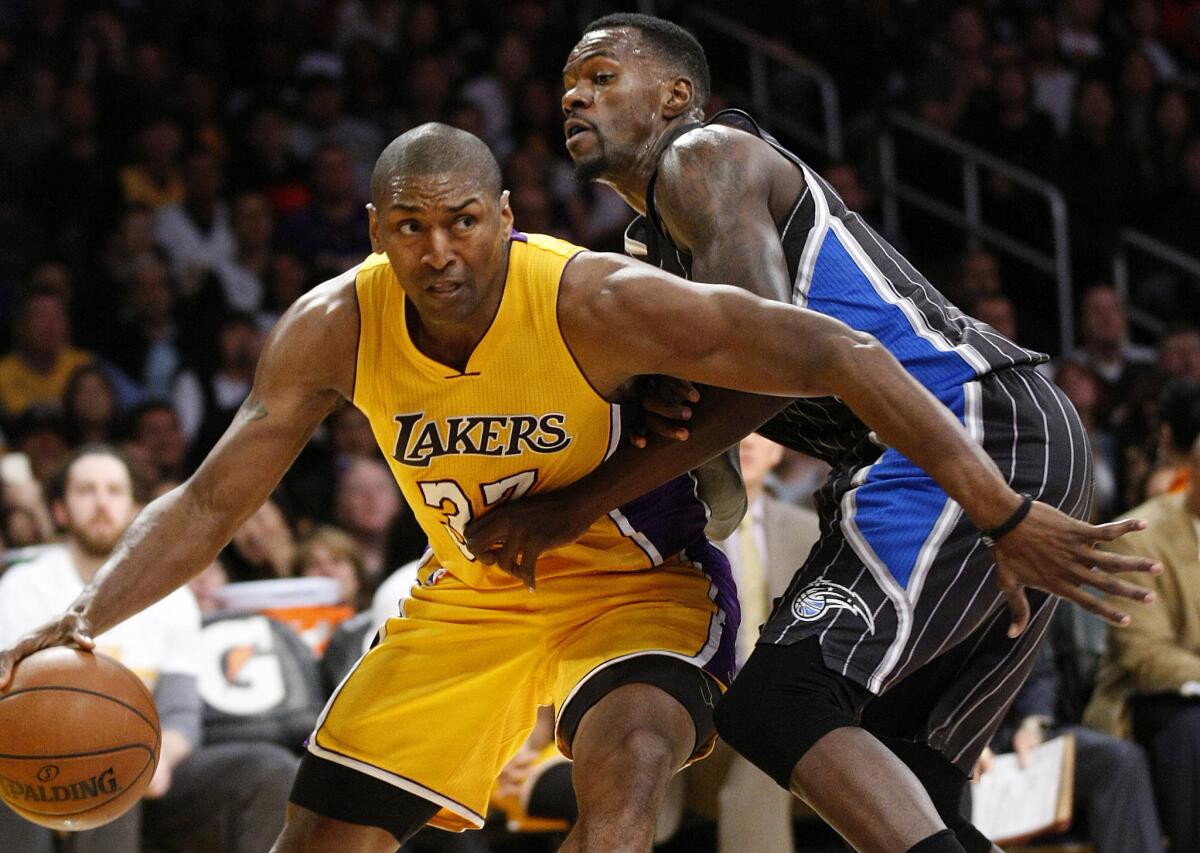
Metta World Peace chuckled softly at the compliment.
Six years apart, the same epiphany had struck two members of the Lakers organization.
This guy their team had signed was known for his antics, his goofiness and occasionally his violence. They weren’t sure at first what kind of teammate they’d just acquired. Quickly, both realized he was nothing like his reputation.
Quickly, he became a favorite.
That was Lakers Coach Luke Walton’s experience as a player when the Lakers signed Metta World Peace, then called Ron Artest, in 2009. It also was Lakers point guard D’Angelo Russell’s experience when the Lakers brought back World Peace in 2015.
Hearing that, World Peace smiled.
He was still dripping with sweat from a post-practice shooting session, working to extend his NBA career.
“Well, I used to be a bad teammate,” said World Peace, showing a less goofy demeanor than he often wears publicly. “I don’t know if I changed. I got back to what I was. Sometimes when you go through life you forget who you are.”
The Lakers are giving him another chance to keep playing. They don’t expect him to make their opening-day roster, but they didn’t expect that last season, when he also signed a one-year nonguaranteed minimum contract. In the meantime, the benefit is mutual. While giving him this opportunity, the Lakers expect World Peace’s influence will help their youthful roster.
“He’s part of the culture we’re trying to build,” Walton said. “It’s about having good people around.”
World Peace was the 20th player the Lakers signed to their training camp roster and they’ll be able to take 15 into the regular season. If he lands on an NBA roster this year, it will be his 17th season.
The future isn’t often on World Peace’s mind. At times he’ll say he hasn’t thought about how long he’d like to play. Other times he says it’s 20 years.
“It’s a hell of a number,” World Peace said. “Only a few people could do it. … So we’ll see.”
That he’d last this long wasn’t always a given.
He was named defensive player of the year in 2004, but never played as well as he thought he should have.
When he entered the league as a Bulls first-round pick in 1999, partying was World Peace’s priority.
“The alcohol played with my performance,” he said. “I should’ve been at 22, 25 [points per game] for more than one year. … I was young, I used to drink and sometimes come to practice intoxicated.”
He also struggled to control his emotions, both good and bad.
The most famous and damaging example came with the brawl in November of 2004 at the Palace of Auburn Hills. For his part in it, World Peace was suspended for the rest of the season. He said he relied on alcohol to get through the suspension.
It took time, but eventually he sought professional help from a psychologist.
“We found ways to relax during the games,” World Peace said. “I’ve been suspended [repeatedly in] my career dating back to elementary [school]. I get so passionate and sometimes it becomes uncontrollable. I had to figure out how to deal with that. I figured that I liked playing basketball and the only way I could play basketball is if I’m on the court.”
When the Lakers first signed him, World Peace was well into that process.
“I was a little worried when we signed him because all I knew was what the media said and … playing against him,” Walton said. “He was a bruiser. And then when I got to know him I realized quickly how great a teammate he is. He’s a very smart basketball player, too. Like he really knows the game, he knows how to play a team concept, and he was always there for his teammates and had our backs.”
He became an important part of the Lakers’ 2009-10 championship team and remained on the roster for four seasons before being amnestied in 2013.
When he returned to the Lakers last season, in the twilight of his career, a new generation of NBA players began learning from his experience. Not because he advised them, or told them what to do, but because of the example he set.
“He didn’t treat me like a young player,” Russell said. “He treated me like that’s an excuse, being a young guy is an excuse, you can definitely attack it by being the best you can be at that age or the best you can be being a first-year player and stuff like that. So it was a different angle that I wanted to attack my first year and he helped me with it.”
Staying on the court still motivates World Peace, and so does having fun.
The work is fun. The goofy news conferences are fun. During media day he talked about a sci-fi erotica project on which he’s working. During training camp he held a lengthy discussion about how babies emerge from the womb happy and wanting candy.
Beyond that, he thinks mostly of the task immediately before him — to work hard enough to give himself a chance to keep going.
And if this is the end?
“Then I’ll just probably,” he said, pausing, “eat breakfast, lunch and dinner.”
tania.ganguli@latimes.com
Twitter: @taniaganguli
More to Read
All things Lakers, all the time.
Get all the Lakers news you need in Dan Woike's weekly newsletter.
You may occasionally receive promotional content from the Los Angeles Times.
